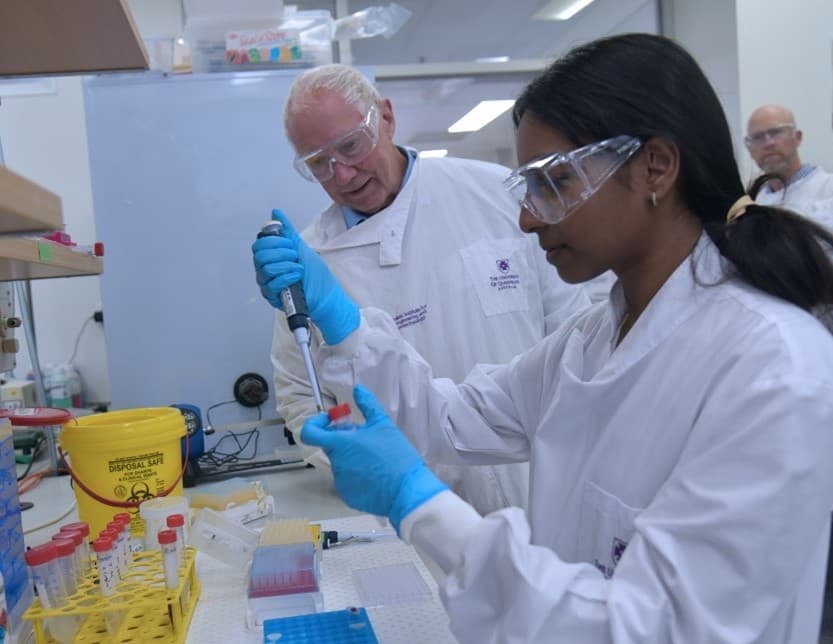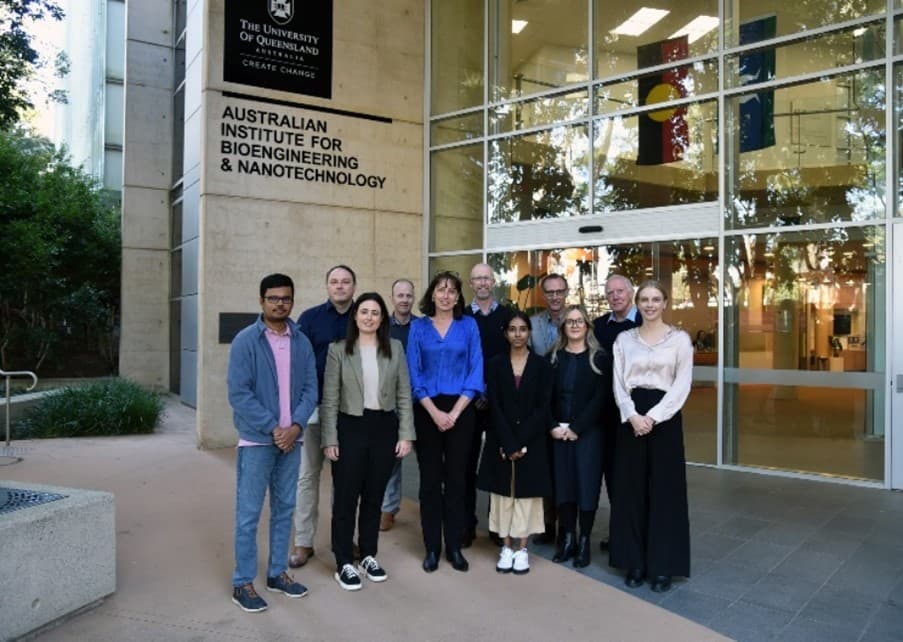
The Motor Accident Insurance Commission (MAIC) is funding a new research fellowship to develop a hydrogel that stops uncontrolled bleeding from severe wounds, using replicated proteins from snake venom.
Dr Amanda Kijas will take up this fellowship to be based at The University of Queensland within the Australian Institute for Bioengineering and Nanotechnology (AIBN).
The fellowship will run for an initial three-year period and will support Dr Kijas and PhD candidates, Madhu Thiagarajan and Dr Lisa Davenport.
The research focus of this fellowship will be on improving treatments for controlling blood loss and enhancing wound healing.
The team are developing a bio bandage to administer a hydrogel which is currently in pre-clinical testing. Within years, the hydrogel could potentially be sold in pharmacies, added to first aid kits, and used by paramedics or military personnel in combat zones, to stop bleeding while a patient is taken to hospital.
Enhancements in these areas have significant potential in the road trauma space, particularly in reducing secondary complications after road crash injuries.
Dr Kijas said this important research has the potential to make a difference to road trauma victims.
“I am so grateful to MAIC for this opportunity to progress this exciting research program which will speed up the wound healing journey for people with road trauma injuries.”
MAIC representatives including Insurance Commissioner, Neil Singleton, recently toured AIBN facilities to learn more about the project.
“It’s exciting to be part of such groundbreaking research with the potential to realise significant benefits for road trauma victims,” Mr Singleton said.
“This research, in the not-too-distant future, could save lives and greatly improve the rehabilitation outcomes for road trauma survivors. MAIC is delighted to be able to partner with Dr Kijas and AIBN in this regard.”
